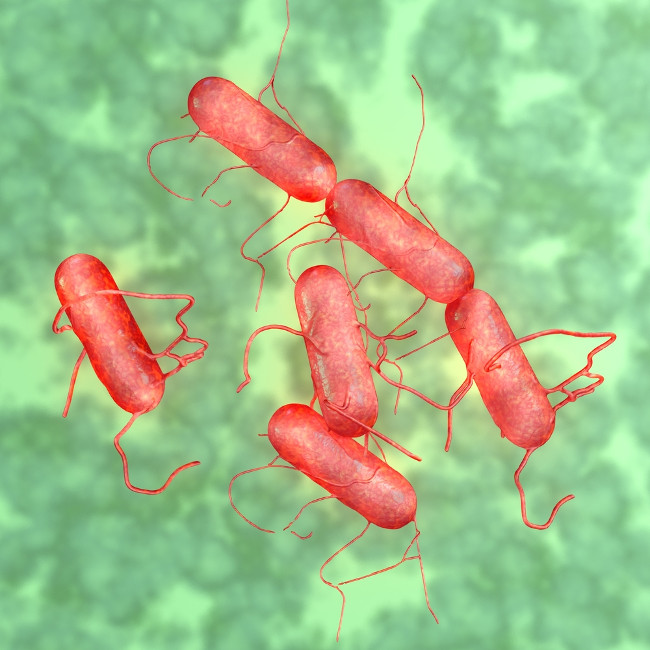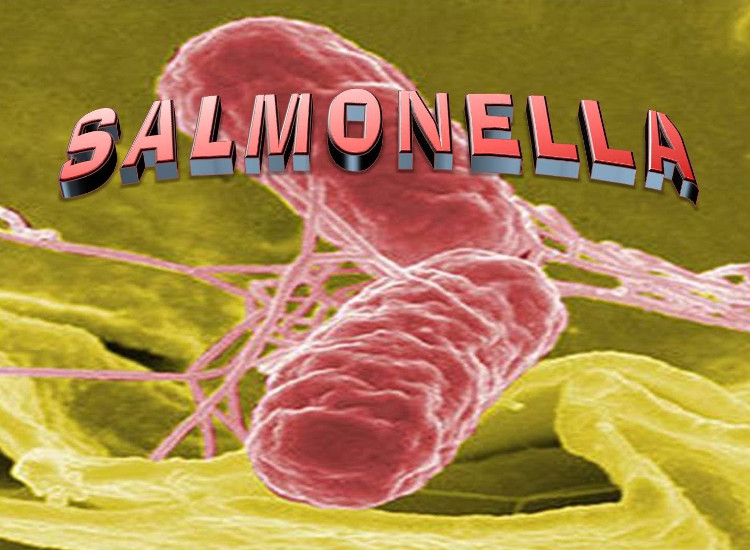What is salmonellosis?
Salmonella is an inflammatory disease caused by a group of bacteria called Salmonella. Salmonella is a common cause of diarrhea, but it can also infect other parts of the body including blood, bones and joints.
What are the symptoms of Salmonella?
Symptoms may progress 12 to 72 hours after infection. Symptoms usually last from 4 to 7 days and may include:
- Diarrhea.
- Stomach cramps.
- Headache.
- Fever.
- Vomiting.
- Dehydration (loss of body fluids), especially in infants and the elderly.

Salmonella infections can be severe in people with weakened immune systems.
How is Salmonella spread?
Salmonella bacteria leave the body through faeces of infected people and animals. Others get infected when infected hands, food, or contaminated items are put in the mouth.
People with Salmonella can spread the bacteria to others if they do not wash their hands after going to the toilet.
A person may be infected with Salmonella due to:
- Eat food or drink water or milk contaminated with Salmonella.
- Eat or touch your mouth after touching an infected animal without first washing your hands.Infected animals often do not seem sick.Animals are often infected with Salmonella including chickens, ducks, pigs, cows, rodents and reptiles such as snakes, lizards and turtles.Pets are a common source of infection.
- Eating ready-to-eat (non-cooking foods) is prepared on food processing surfaces or with items contaminated with Salmonella.
How are Salmonella infections diagnosed and treated?
- Salmonella infections are usually diagnosed by a stool test to detect bacteria.
- Most people recover without treatment .Sometimes, antibiotics are used for people who are seriously ill.Antibiotics may also be helpful for babies and people with certain chronic diseases.
- Should drink plenty of fluids to prevent dehydration.

Thorough hand washing is the best way to prevent the spread of intestinal infections.
Preventing Salmonella infection?
- Thorough hand washing is the best way to prevent the spread of intestinal infections.
- Wash your hands with soap and warm water after using the toilet, changing diapers, touching animals and before eating or preparing food.
- Do not allow reptiles to feed or bathe your child.
- Do not allow reptiles and amphibians to enter the home with children under 5 years of age or those with weakened immune systems.
- Thoroughly cook all types of meat, especially poultry meat.
- Do not eat raw or undercooked eggs.
- Only drink pasteurized milk.
- Defrost the meat and poultry in the refrigerator instead of at room temperature.
- Immediately put food in the refrigerator.
- Wash cutting boards and kitchen shelves for processing meat or poultry immediately after use to avoid cross-contamination to other foods.
- Do not swim in a pool or pool if you have diarrhea.
NOTE: People with diarrhea should not prepare or serve food or drink to others, take care of children or health care. Children with diarrhea cannot go to daycare or go to school.
- Machine to reproduce live activities
- Fever Smart - Smart thermometer
- The chip gradually increased the number of cores and worries about heat
- Photoshop CS: Grid line system
- Drinking beer prevents osteoporosis
- 83 people died in the US syphilis experiment
- The simplest ways of body toxicity
- NASA recruits people just to lie in bed
- Video: The reason the brain can't do many things at the same time
- Arctic will no longer have ice fields
- Saigon was in fog again
- Discover new monkey species in the Amazon forest
 Green tea cleans teeth better than mouthwash?
Green tea cleans teeth better than mouthwash? Death kiss: This is why you should not let anyone kiss your baby's lips
Death kiss: This is why you should not let anyone kiss your baby's lips Caution should be exercised when using aloe vera through eating and drinking
Caution should be exercised when using aloe vera through eating and drinking Prospects gel to help women fight HIV
Prospects gel to help women fight HIV